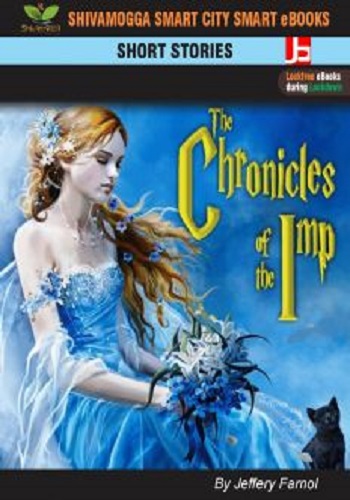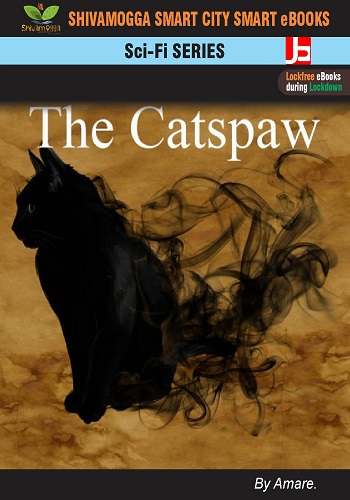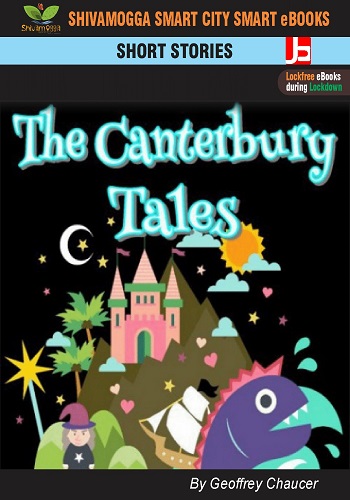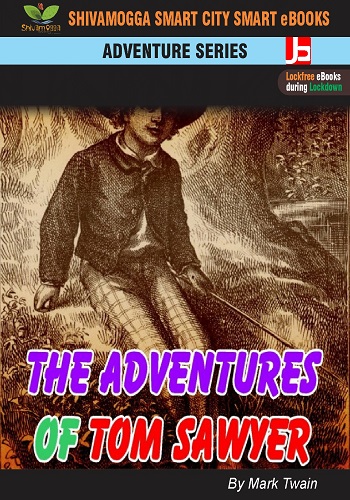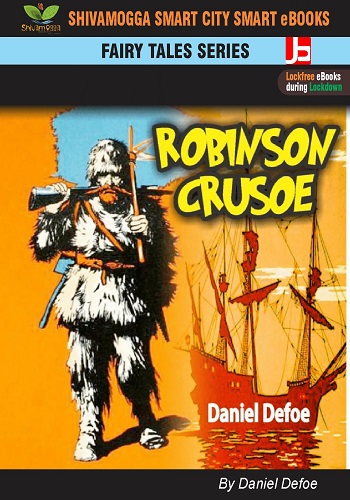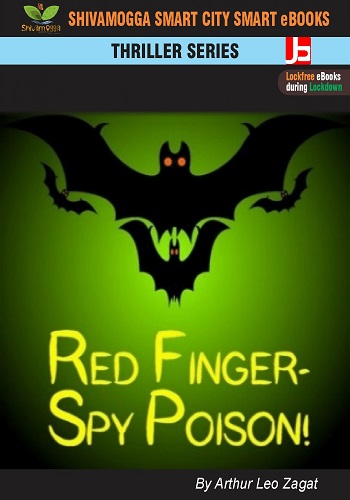-
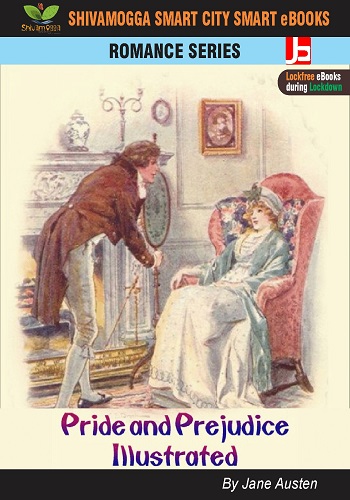 "It is a truth universally acknowledged, that a single man in possession of a good fortune, must be in want of a wife." And certainly what Melville did for whaling Austen does for marriage--tracing the intricacies (not to mention the economics) of 19th-century British rituals with a sure hand and an unblinking eye. As usual, Austen trains her sights on a country village and a few families--in this case, the Bennets, the Philips, and the Lucases. Into their midst comes Mr. Bingley, a single man of good fortune, and his friend, Mr. Darcy, who is even richer. Mrs. Bennet, who married above her station, sees their arrival as an opportunity to marry off at least one of her five daughters. Bingley is complaisant and easily charmed by the eldest Bennet girl, Jane; Darcy, however, is harder to please. Put off by Mrs. Bennet's vulgarity and the untoward behavior of the three younger daughters, he is unable to see the true worth of the older girls, Jane and Elizabeth. His excessive pride offends Lizzy, who is more than willing to believe the worst that other people have to say of him; when George Wickham, a soldier stationed in the village, does indeed have a discreditable tale to tell, his words fall on fertile ground. Having set up the central misunderstanding of the novel, Austen then brings in her cast of fascinating secondary characters: Mr. Collins, the sycophantic clergyman who aspires to Lizzy's hand but settles for her best friend, Charlotte, instead; Lady Catherine de Bourgh, Mr. Darcy's insufferably snobbish aunt; and the Gardiners, Jane and Elizabeth's low-born but noble-hearted aunt and uncle. Some of Austen's best comedy comes from mixing and matching these representatives of different classes and economic strata, demonstrating the hypocrisy at the heart of so many social interactions. And though the novel is rife with romantic misunderstandings, rejected proposals, disastrous elopements, and a requisite happy ending for those who deserve one, Austen never gets so carried away with the romance that she loses sight of the hard economic realities of 19th-century matrimonial maneuvering. Good marriages for penniless girls such as the Bennets are hard to come by, and even Lizzy, who comes to sincerely value Mr. Darcy, remarks when asked when she first began to love him: "It has been coming on so gradually, that I hardly know when it began. But I believe I must date it from my first seeing his beautiful grounds at Pemberley." She may be joking, but there's more than a little truth to her sentiment, as well. Jane Austen considered Elizabeth Bennet "as delightful a creature as ever appeared in print". Readers of Pride and Prejudice would be hard-pressed to disagree. --Alix Wilber
"It is a truth universally acknowledged, that a single man in possession of a good fortune, must be in want of a wife." And certainly what Melville did for whaling Austen does for marriage--tracing the intricacies (not to mention the economics) of 19th-century British rituals with a sure hand and an unblinking eye. As usual, Austen trains her sights on a country village and a few families--in this case, the Bennets, the Philips, and the Lucases. Into their midst comes Mr. Bingley, a single man of good fortune, and his friend, Mr. Darcy, who is even richer. Mrs. Bennet, who married above her station, sees their arrival as an opportunity to marry off at least one of her five daughters. Bingley is complaisant and easily charmed by the eldest Bennet girl, Jane; Darcy, however, is harder to please. Put off by Mrs. Bennet's vulgarity and the untoward behavior of the three younger daughters, he is unable to see the true worth of the older girls, Jane and Elizabeth. His excessive pride offends Lizzy, who is more than willing to believe the worst that other people have to say of him; when George Wickham, a soldier stationed in the village, does indeed have a discreditable tale to tell, his words fall on fertile ground. Having set up the central misunderstanding of the novel, Austen then brings in her cast of fascinating secondary characters: Mr. Collins, the sycophantic clergyman who aspires to Lizzy's hand but settles for her best friend, Charlotte, instead; Lady Catherine de Bourgh, Mr. Darcy's insufferably snobbish aunt; and the Gardiners, Jane and Elizabeth's low-born but noble-hearted aunt and uncle. Some of Austen's best comedy comes from mixing and matching these representatives of different classes and economic strata, demonstrating the hypocrisy at the heart of so many social interactions. And though the novel is rife with romantic misunderstandings, rejected proposals, disastrous elopements, and a requisite happy ending for those who deserve one, Austen never gets so carried away with the romance that she loses sight of the hard economic realities of 19th-century matrimonial maneuvering. Good marriages for penniless girls such as the Bennets are hard to come by, and even Lizzy, who comes to sincerely value Mr. Darcy, remarks when asked when she first began to love him: "It has been coming on so gradually, that I hardly know when it began. But I believe I must date it from my first seeing his beautiful grounds at Pemberley." She may be joking, but there's more than a little truth to her sentiment, as well. Jane Austen considered Elizabeth Bennet "as delightful a creature as ever appeared in print". Readers of Pride and Prejudice would be hard-pressed to disagree. --Alix Wilber -
 At Baskerville Hall on the grim moors of Devonshire, a legendary curse has apparently claimed one more victim. Sir Charles Baskerville has been found dead. There are no signs of violence, but his face is hideously distorted with terror. Years earlier, a hound-like beast with blazing eyes and dripping jaws was reported to have torn out the throat of Hugo Baskerville. Has the spectral destroyer struck again? More important, is Sir Henry Baskerville, younger heir to the estate, now in danger?Enter Sherlock Holmes, summoned to protect Sir Henry from the fate that has threatened the Baskerville family. As Holmes and Watson begin to investigate, a blood-chilling howl from the fog-shrouded edges of the great Grimpen Mire signals that the legendary hound of the Baskervilles is poised for yet another murderous attack. It has often been called the best detective story ever written. It remains a thrilling tale of suspense, must reading for every lover of detective fiction.
At Baskerville Hall on the grim moors of Devonshire, a legendary curse has apparently claimed one more victim. Sir Charles Baskerville has been found dead. There are no signs of violence, but his face is hideously distorted with terror. Years earlier, a hound-like beast with blazing eyes and dripping jaws was reported to have torn out the throat of Hugo Baskerville. Has the spectral destroyer struck again? More important, is Sir Henry Baskerville, younger heir to the estate, now in danger?Enter Sherlock Holmes, summoned to protect Sir Henry from the fate that has threatened the Baskerville family. As Holmes and Watson begin to investigate, a blood-chilling howl from the fog-shrouded edges of the great Grimpen Mire signals that the legendary hound of the Baskervilles is poised for yet another murderous attack. It has often been called the best detective story ever written. It remains a thrilling tale of suspense, must reading for every lover of detective fiction. -
 This early work by Edgar Wallace. ""The Golden Hades"" is a tale of murder and a symbol on bank notes leading to a sinister organization. This mystery novel features Wilbur Smith of the Treasury Department for Counterfeit in his investigations. Each time a crime happens be it a robbery or a murder, there is a sinister sign of Pluto (Hades) gold there... a statue of the Greek god of the underworld and the sign of dangerous gang of forgers. One of the most prolific writers of the twentieth century, Edgar Wallace was an immensely popular author, who created exciting thrillers spiced with tales of treacherous crooks and hard-boiled detectives. **
This early work by Edgar Wallace. ""The Golden Hades"" is a tale of murder and a symbol on bank notes leading to a sinister organization. This mystery novel features Wilbur Smith of the Treasury Department for Counterfeit in his investigations. Each time a crime happens be it a robbery or a murder, there is a sinister sign of Pluto (Hades) gold there... a statue of the Greek god of the underworld and the sign of dangerous gang of forgers. One of the most prolific writers of the twentieth century, Edgar Wallace was an immensely popular author, who created exciting thrillers spiced with tales of treacherous crooks and hard-boiled detectives. ** -
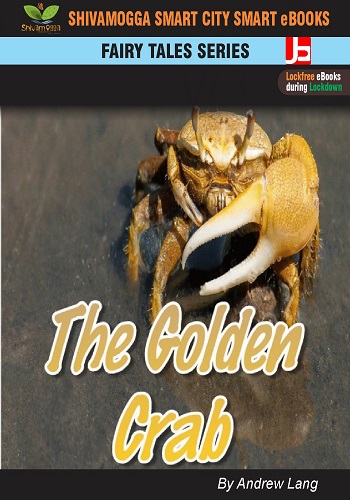 The Golden Crab' is a Greek fairy-tale that tells us a story of fisherman who one day cathces a golden crab together with fish. The crab is being taken to the fisherman's house where he demands to be fed. So fisherman and his wife feed the creature. But then he demands to marry the fisherman's young daughter… what will happen next?
The Golden Crab' is a Greek fairy-tale that tells us a story of fisherman who one day cathces a golden crab together with fish. The crab is being taken to the fisherman's house where he demands to be fed. So fisherman and his wife feed the creature. But then he demands to marry the fisherman's young daughter… what will happen next? -
 The story begins with: On a glass mountain grew a tree with golden apples. An apple would let the picker into the golden castle where an enchanted princess lived. Many knights had tried and failed, so that many bodies lay about the mountain. A knight in golden armor tried. One day, he made it halfway up and calmly went down again. The second day, he tried for the top, and was climbing steadily when an eagle attacked him. He and his horse fell to their deaths. A schoolboy killed a lynx and climbed with its claws attached to his feet and hands. Weary, he rested on the slope. The eagle thought he was carrion and flew down to eat him. The boy grabbed it, and it, trying to shake him off, carried him the rest of the way. He cut off its feet and fell into the apple tree. The peels of the apples cured his wounds, and he picked more, to let him into the castle. He married the princess. The blood of the eagle restored to life everyone who had died trying to climb the mountain.
The story begins with: On a glass mountain grew a tree with golden apples. An apple would let the picker into the golden castle where an enchanted princess lived. Many knights had tried and failed, so that many bodies lay about the mountain. A knight in golden armor tried. One day, he made it halfway up and calmly went down again. The second day, he tried for the top, and was climbing steadily when an eagle attacked him. He and his horse fell to their deaths. A schoolboy killed a lynx and climbed with its claws attached to his feet and hands. Weary, he rested on the slope. The eagle thought he was carrion and flew down to eat him. The boy grabbed it, and it, trying to shake him off, carried him the rest of the way. He cut off its feet and fell into the apple tree. The peels of the apples cured his wounds, and he picked more, to let him into the castle. He married the princess. The blood of the eagle restored to life everyone who had died trying to climb the mountain. -
 Excerpt: ...I alighted there were tears of eagerness in my eyes. "Yes," I replied breathlessly, "oh, sir, yes." "Then pick up that," he cried dramatically, pointing to a cigar butt on the parade ground. I didn't wait for the laughter. I didn't have to. It was forthcoming immediately. Huge peals of it. Sailors are a very low tribe of vertebrate. They seem to hang around most of the time waiting for something to laugh at **
Excerpt: ...I alighted there were tears of eagerness in my eyes. "Yes," I replied breathlessly, "oh, sir, yes." "Then pick up that," he cried dramatically, pointing to a cigar butt on the parade ground. I didn't wait for the laughter. I didn't have to. It was forthcoming immediately. Huge peals of it. Sailors are a very low tribe of vertebrate. They seem to hang around most of the time waiting for something to laugh at ** -
 The Adventure of the Sussex Vampire, written by British author Arthur Conan Doyle, is one of 12 Sherlock Holmes stories collected between 1921 and 1927 as The Case-Book of Sherlock Holmes. It was first published in the January 1924 issues of The Strand Magazine in London and Hearst's International Magazine in New York.
The Adventure of the Sussex Vampire, written by British author Arthur Conan Doyle, is one of 12 Sherlock Holmes stories collected between 1921 and 1927 as The Case-Book of Sherlock Holmes. It was first published in the January 1924 issues of The Strand Magazine in London and Hearst's International Magazine in New York. -
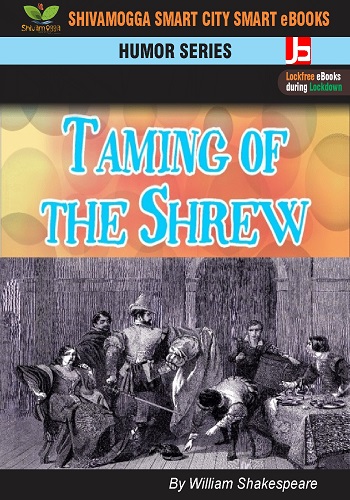 Love and wit conquer all in Shakespeare's sparkling comedy of self-delusion and disguise. Padua holds many suitors for the hand of fair Bianca, but Bianca may not be married until her spinster sister, Kate, is wed. Could any man be rash enough to take on Kate? The witty adventurer Petruchio undertakes the task. While he sets about transforming Kate from foul-tempered termagant to loving wife, young Lucentio and his clever servant
Love and wit conquer all in Shakespeare's sparkling comedy of self-delusion and disguise. Padua holds many suitors for the hand of fair Bianca, but Bianca may not be married until her spinster sister, Kate, is wed. Could any man be rash enough to take on Kate? The witty adventurer Petruchio undertakes the task. While he sets about transforming Kate from foul-tempered termagant to loving wife, young Lucentio and his clever servant -
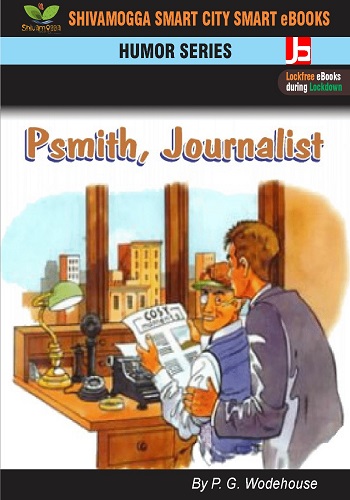 The story begins with Psmith accompanying his fellow student Mike to New York on a cricketing tour. Through high spirits and force of personality, Psmith takes charge of a minor periodical, and becomes embroiled in a scandal involving slum landlords, boxing and gangsters – the story displays a strong social conscience, rare in Wodehouse's generally light-hearted works.
The story begins with Psmith accompanying his fellow student Mike to New York on a cricketing tour. Through high spirits and force of personality, Psmith takes charge of a minor periodical, and becomes embroiled in a scandal involving slum landlords, boxing and gangsters – the story displays a strong social conscience, rare in Wodehouse's generally light-hearted works.





